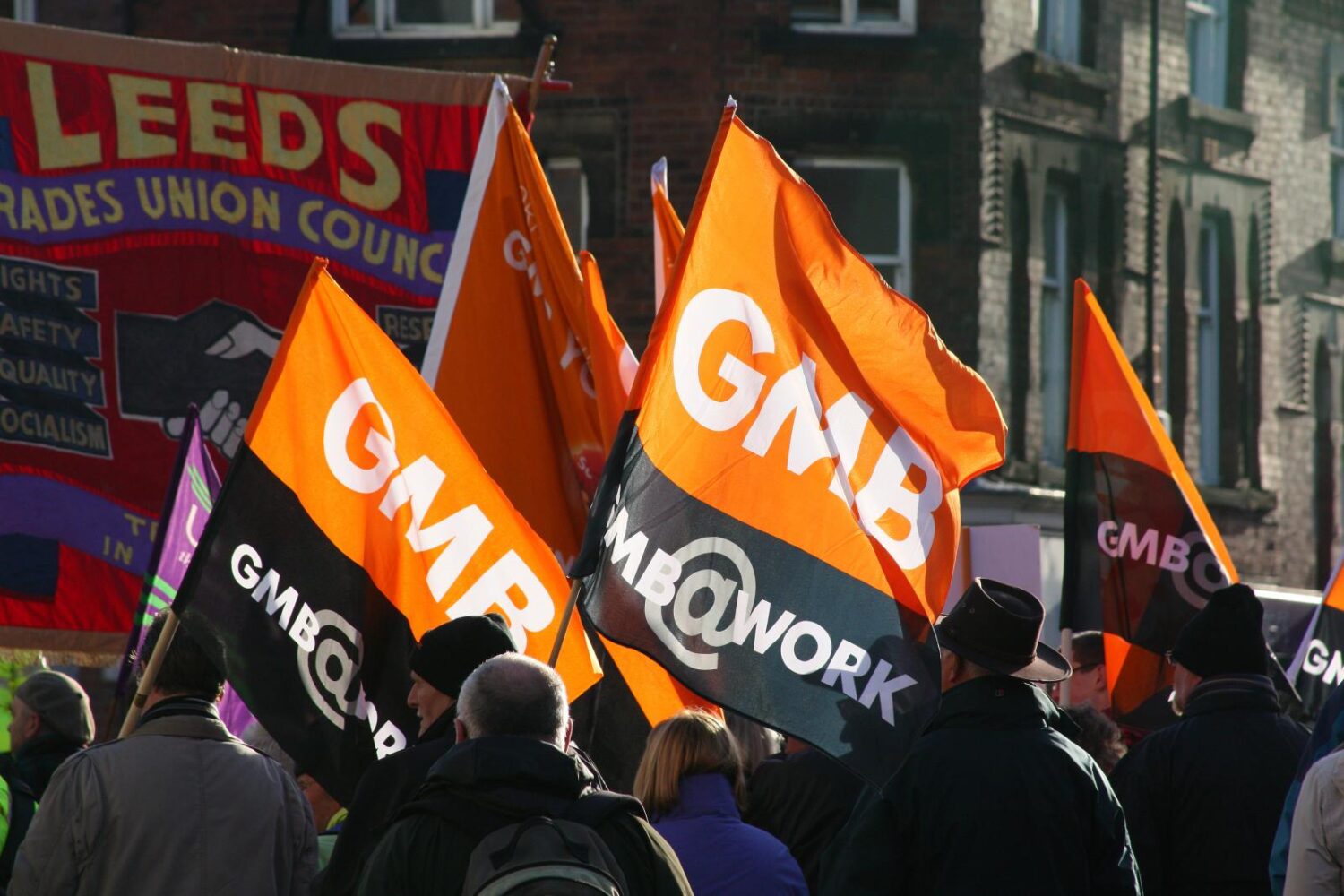Ambitious vision
A Labour government could be the catalyst for a new era of organised labour, writes Gary Smith
The strikes that rocked employers and the political establishment in 2023 did not represent a return to a bygone era, as some have claimed. These demonstrations of worker power represent the start of something new.
Not before time. It is increasingly hard to deny that our country is in decline. The UK may have been the birthplace of the industrial revolution, but we are now better known for leading the charge towards deindustrialisation. Surviving industries are buckling under unsustainable energy costs while the promised ‘green jobs of the future’ have failed to materialise. The neglect of our industrial base is cruelly exposed as industrial-scale war returns to Europe.
As the UK’s economy fragmented, organised Labour suffered. Under any sensible analysis, the decline of the trade union movement should have set alarm bells ringing in Westminster and Whitehall. Collective bargaining is the only effective mechanism for ensuring the fair distribution of wealth at source, and the fragmentation of the UK’s system of industrial relations has opened the door to a wider hollowing out of our economy.
If alarm bells did ring, they went unheeded, and we can see the effects all around us. Real wages are lower than they were 15 years ago. The income and wealth gap between the richest 1 per cent and the rest of the country is widening. In the public sector, workers have endured the sharpest pay cuts since records began; unsurprisingly, vacancy rates are now at critical levels. The failure to invest enough is fuelling voters’ dissatisfaction, and the underfunding of our schools, councils, and hospitals is a drag on the economic growth that the country needs.
The country is crying out for better, but the industrial relations rules and structures that we operate within are not fit for the challenge. This failure has serious consequences for us all, and it poses big questions for a Labour party on the cusp, hopefully, of forming the next government.
There are other important problems that Labour will have to contend with. Manufacturers are constrained by exceptionally high energy costs and the terms of a bad Brexit agreement. Key manufacturing and engineering skills are being lost, and investment is increasingly attracted overseas. Our essential infrastructure, unprotected by weak regulation, has been opened up to private equity profiteers – with predictable consequences for sectors from utilities to high street retail and social care. People who depend on those services and the workers who supply them are all paying the price.
The UK’s publicly listed companies are increasingly dominated by overseas shareholders. Already, we have one of the lowest levels of domestic ownership in the OECD. Workers – and even management – are disempowered as a result. Investment decisions are more likely to go overseas.
In other words, the ‘productivity puzzle’ – much studied by politicians – is not such a mystery to GMB’s members. Radical change is needed if the UK is to break out of its diminishing cycle of low wages, low investment, and low growth.
A Labour party in power will have to actively embed pro-union policies in its industrial strategy. It would at least have an example to build on. Under Joe Biden in the US, federal subsidies are tied to the creation of good, unionised jobs, and his administration is delivering record growth in manufacturing employment. I’ve heard directly from our sisters and brothers in the US labour movement about how these successful policies were designed with unions round the table. Ahead of next year’s presidential election, these policies represent perhaps the best bulwark against the political disenchantment, so crucial to the election of Trump, that follows in deindustrialisation’s wake.
Biden has also sought to extend as an object of policy “the dignity and respect that comes with the right to union organize and collectively bargain”. Workers are represented in trade talks, for example. The contrast with Conservative ministers, who often seem to be prisoners to past conflicts and an ideological hostility to unions, could not be starker.
We should not seek a carbon copy of the Democrats’ agenda – our national circumstances are too different. But Biden’s approach points to the almost wartime scale of the response that our shared challenges demand.
Neither should we seek a rerun of relations after 1997. The last Labour government instituted some important new rights after the near-dismantling of our industrial relations framework under Thatcher and Major, but lacked a clear vision for the role of trade unions. Some of the advances made between 1997 and 2010 have since been unpicked. As a result, our industrial relations system remains calcified and archaic.
There are, though, reasons to be optimistic. Labour party conference is due to debate the final National Policy Forum report, the last stop on the road to the manifesto. GMB was part of the discussions that led to its final draft. While no document will satisfy everyone, we must not lose sight of the historic importance of its commitments: electronic balloting; a right of access to organise in workplaces; enhanced redress for equal pay injustices; new bargaining structures covering more than two million low-paid workers in social care and schools; reforming the statutory recognition process, the weaknesses of which are ruthlessly exploited by employers like Amazon; and a voice for workers in the making of economic, industrial, and trade policy. All these pledges are essential foundations for a modern industrial relations framework.
This is not about trying to turn the clock backwards. Society and the world of work have changed profoundly since 1979. We need something new. Labour’s challenge now is to reshape the economy in a way that strengthens workers’ voices in the workplace and wider society. That is the route to a better, growing economy, where the proceeds of labour are shared by all.
Our union is a critical friend, and we do not hesitate in our criticism when it is due. GMB is challenging local authorities which shamefully permitted pay structures that discriminated against women, including in some Labour-run areas. In my view, Labour is yet to set out a wholly convincing plan for how it would address the critical challenges of energy sustainability and security. In any case, we are clear that we do not look to political or institutional saviours. The infrastructure of trade union education and the vitality of our democratic structures can only be rebuilt and strengthened by our own efforts. Organised labour does not solely exist to secure redress against workplace injustices – trade unions advance working people’s interests everywhere.
But Keir Starmer’s pledge to use the power of state procurement to advance union recognition, and Rachel Reeves’s articulation of an agenda based on strengthening our economic security, are welcome signs that Labour is listening. As we approach the election, GMB’s members are looking to Labour as a credible alternative party of government.
Labour has set its own aim of securing economic growth based on investment, skills, and higher wages. It is an ambitious and necessary commitment and to realise this aim, Labour should make the rejuvenation of workers’ self-organisation an essential objective of its political economy.
As it approaches what may be its last conference before the election, Labour should articulate a vision for how the New Deal for Working People will prepare the way for the industrial relations framework of the future. GMB’s members, and the country, are waiting.
Image credit: Nick Efford via Flickr

